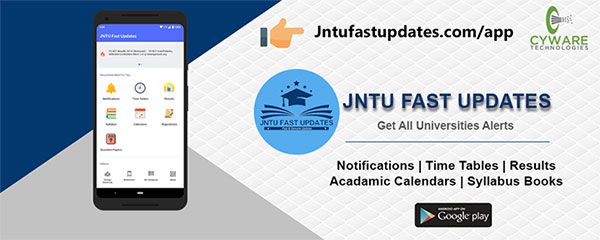JNTUK R16 4-2 Operating Systems Material/Notes PDF Download
Students those who are studying JNTUK R16 ECE Branch, Can Download Unit wise R16 4-2 Operating Systems (OS) Material/Notes PDFs below.

JNTUK R16 4-2 Operating Systems Material/Notes PDF Download
OBJECTIVES:
- Study the basic concepts and functions of operating systems.
- Understand the structure and functions of OS.
- Learn about Processes, Threads and Scheduling algorithms.
- Understand the principles of concurrency and Deadlocks.
- Learn various memory management schemes.
- Study I/O management and File systems.
- Learn the basics of Linux system and perform administrative tasks on Linux Servers.
UNIT-1
Introduction to Operating System Concept: Types of operating systems, operating systems concepts, operating systems services, Introduction to System call, System call types.
UNIT-2
Process Management – Process concept, The process, Process State Diagram, Process control block, Process Scheduling- Scheduling Queues, Schedulers, Operations on Processes, Interprocess Communication, Threading Issues, Scheduling-Basic Concepts, Scheduling Criteria, Scheduling Algorithms.
UNIT-3
Memory Management: Swapping, Contiguous Memory Allocation, Paging, structure of the Page Table, Segmentation Virtual Memory Management: Virtual Memory, Demand Paging, Page-Replacement Algorithms, Thrashing
UNIT-4
Concurrency: ProcessSynchronization, The Critical- Section Problem, Synchronization Hardware, Semaphores, Classic Problems of Synchronization, Monitors, Synchronization examples Principles of deadlock – System Model, Deadlock Characterization, Deadlock Prevention, Detection and Avoidance, Recovery form Deadlock
UNIT-5
File system Interface- the concept of a file, Access Methods, Directory structure, File system mounting, file sharing, protection. File System implementation- File system structure, allocation methods, free-space management Mass-storage structure overview of Mass-storage structure, Disk scheduling, Device drivers,
UNIT-6
Linux System: Components of LINUX, Interprocess Communication, Synchronisation, Interrupt, Exception and System Call. Android Software Platform: Android Architecture, Operating System Services, Android Runtime Application Development, Application Structure, Application Process management
TEXT BOOKS:
- Operating System Concepts, Abraham Silberschatz, Peter Baer Galvin and Greg Gagne 9th Edition, John Wiley and Sons Inc., 2012.
- Operating Systems – Internals and Design Principles, William Stallings, 7th Edition, Prentice Hall, 2011.
- Operating Systems-S Halder, Alex A Aravind Pearson Education Second Edition 2016
REFERENCE BOOKS:
- Modern Operating Systems, Andrew S. Tanenbaum, Second Edition, Addison Wesley, 2001.
- Operating Systems: A Design-Oriented Approach, Charles Crowley, Tata Mc Graw Hill Education”, 1996.
- Operating Systems: A Concept-Based Approach, D M Dhamdhere, Second Edition, Tata Mc Graw-Hill Education, 2007.
OUTCOMES:
- Design various Scheduling algorithms.
- Apply the principles of concurrency.
- Design deadlock, prevention and avoidance algorithms.
- Compare and contrast various memory management schemes.
- Design and Implement a prototype file systems.
- Perform administrative tasks on Linux Servers
- Introduction to Android Operating System Internals

320-x100(1).gif)
